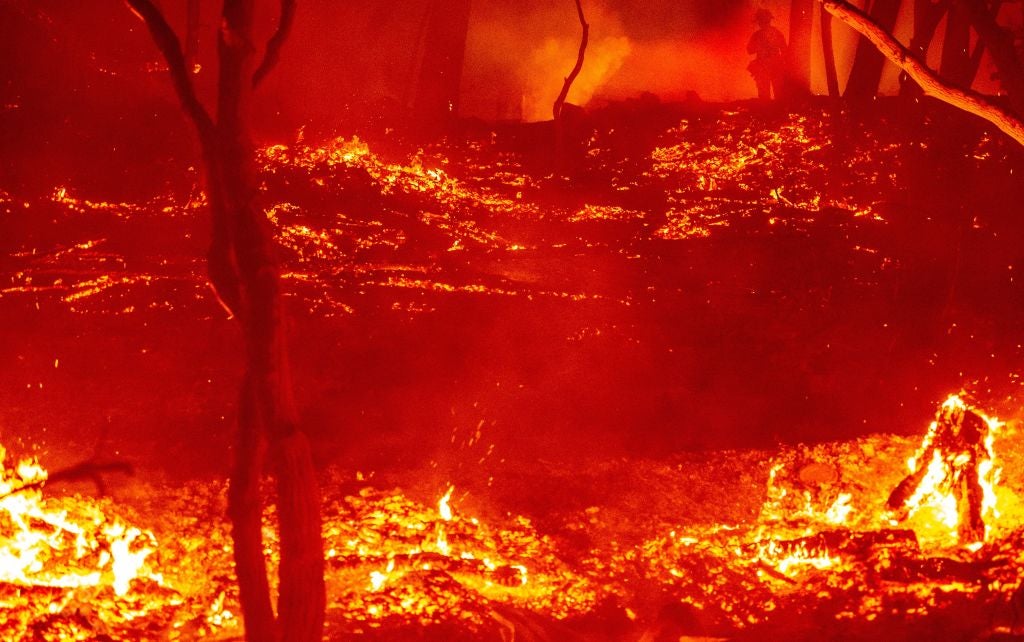On climate change, the younger generations must shout even louder
The average age of political leaders across Europe is around 50. Unless that changes, millennials will reach positions of leadership in the late 2030s. It might be too late for the planet, writes Laurie Laybourn-Langton

What a difference a crisis makes. It wasn’t all that long ago a Tory prime minister wanted to “get rid of all the green crap”. This week, however, Boris Johnson committed to power all homes in the UK with wind by 2030, investing £160m as part of a wider drive to “build back greener” by making Britain a world leader in clean power.
The proposals have rightly been welcomed. Yet the prime minister’s step-up in ambition seems less impressive when considering that green investment totalling £30bn a year will be needed to close the gap between the government’s planned investments and its stated goals for decarbonisation and restoring nature.
And it all seems even less ambitious in the wider context of a global environmental crisis that is spiralling out of our control. The California wildfires have burned through around four million acres of land – nearly 10 times the area of London. That’s already more than twice as much as burned last year, and this year’s season isn’t over yet.
Everywhere, important ecosystems are passing disastrous tipping points. The science has always been clear that this is what will happen if governments, companies and the rest of society continue to make decisions that don’t limit destruction of the natural world. Sadly, they have not stopped making those decisions, and so now we get the fires and the storms and the spiralling collapse of animal populations: a new age of destabilisation.
But there is hope. Younger generations, increasingly coming to political confidence, are rallying in the face of this nihilism. They are already making their voices heard, including the millennials and Gen Z who have poured their energies into Black Lives Matter, Fridays for the Future, Extinction Rebellion and the myriad other movements growing by the day.
Their voices must become louder, however, and must urgently be heard among people running for public office, as millennials and others supplant the failed leaders of older generations. The average age of political leaders across Europe is around 50. Unless that changes, millennials will only reach positions of leadership in the late 2030s and into the 2040s, by which point global temperature rises could already be approaching 2C.
This puts a particularly severe burden on the shoulders of younger generations. They must rapidly transform societies in an attempt to stabilise the biosphere, while contending with accelerating environmental impacts and their consequences for societies – including political extremism and the fear and hopelessness they feed off. A failure of leadership under these conditions could ultimately fracture humanity’s ability to mitigate the environmental crisis at all. There is no time to waste.
The consequences of the destruction of nature and global heating are already rippling out through our interconnected world, in the same way as with the impacts of coronavirus, but with far more sustained and serious consequences. One day – hopefully – we’ll be able to vaccinate against Covid-19. Until then, we can mitigate its impact, using testing, tracing and treatment. We can’t inoculate against the horrors of 3C of warming and mass extinction; stable societies will simply not be able to exist.
The global situation is now so dire that we are, according to many earth system scientists, in a state of “planetary emergency”. As with Covid-19 back in March, immediate worldwide action is needed to respond to this emergency.
The longer this response is delayed, the worse the impacts of environmental breakdown will become, and the more difficult it will be to change course. Just as it was hard to imagine, back in February, a world of lockdowns and 42,000-plus UK deaths, it is nigh on impossible to comprehend what it would be like, in a decade or two’s time, to fight against a 2C temperature rise in a world already battered by the consequences of a 1.5C temperature rise. But it will certainly be more difficult than fighting against a 1.5C in a 1.1C world, where we are now.
Significant destabilisation is guaranteed by the damage already done to nature, so we must be prepared for the political consequences this will bring. Just as Covid-19 has emboldened nationalist movements and conspiratorial voices around the world, the impacts of environmental breakdown could embolden those who say “it's too late to do anything” and argue to put up the walls and protect “what’s left” in one country.
Actions in this current decade – right now – will decide the fate of humanity and this world for many generations. The ambition of current leaders does not match the scale of the problem. It’s time to bring in the voices of the future.
Laurie Laybourn-Langton is an associate fellow at think tank IPPR and lead author of A New Politics for the Age of Environmental Breakdown





Join our commenting forum
Join thought-provoking conversations, follow other Independent readers and see their replies
Comments